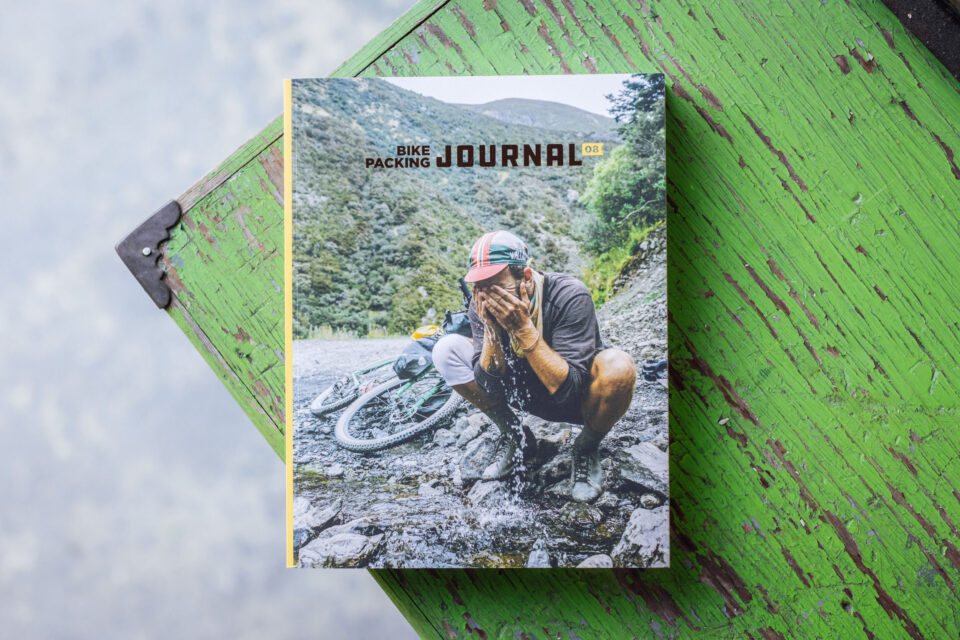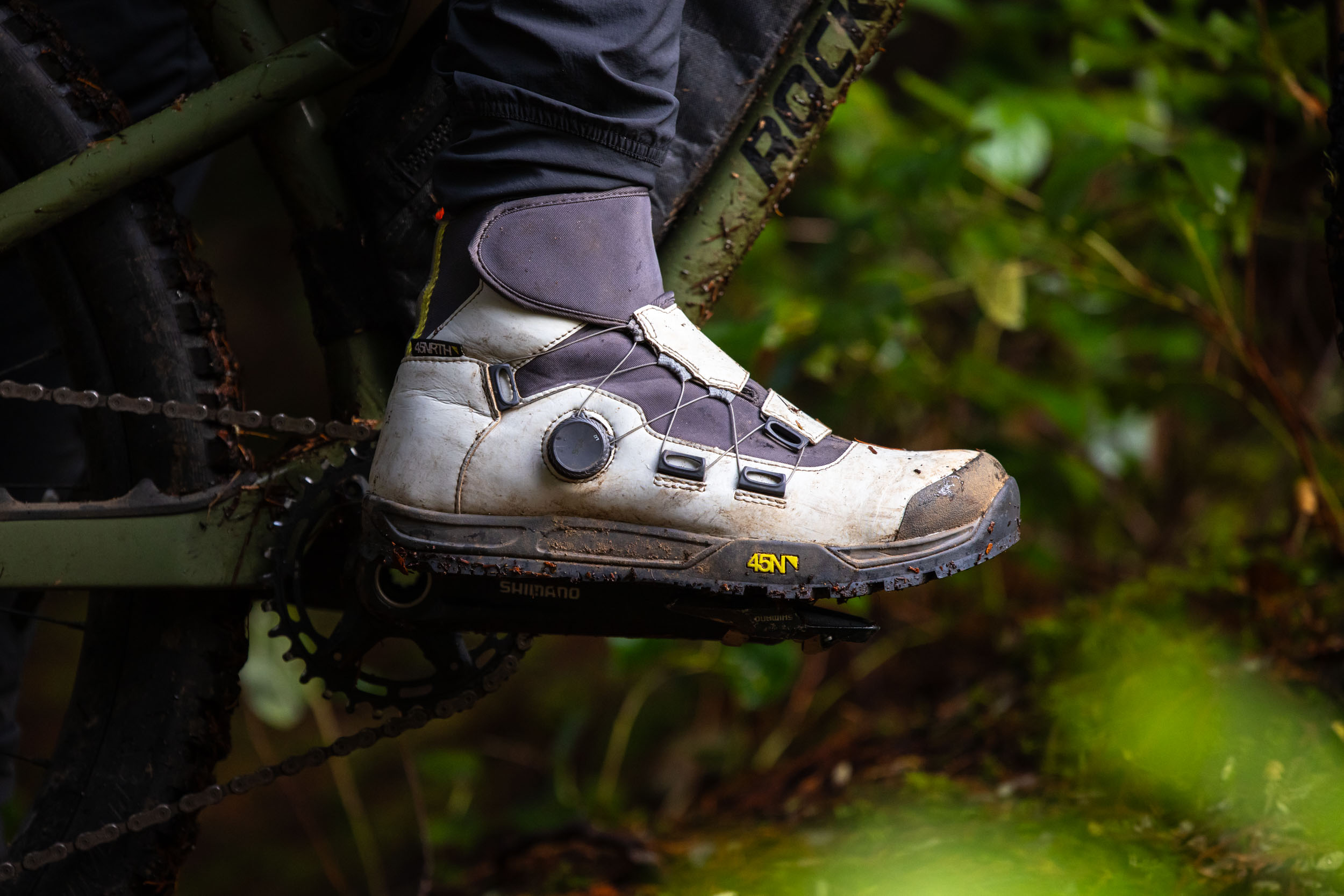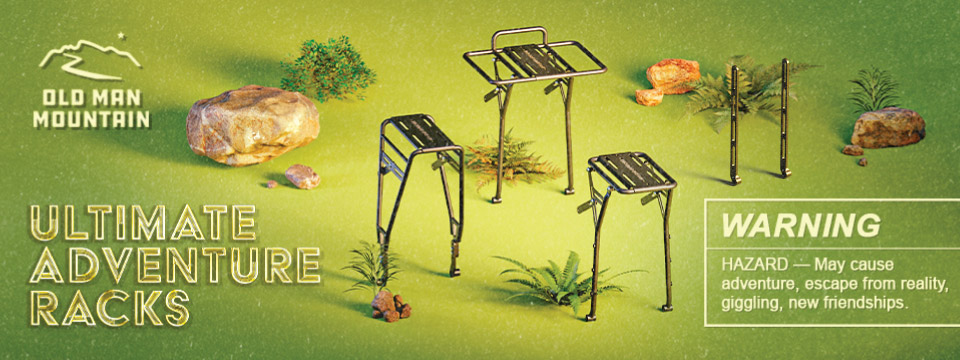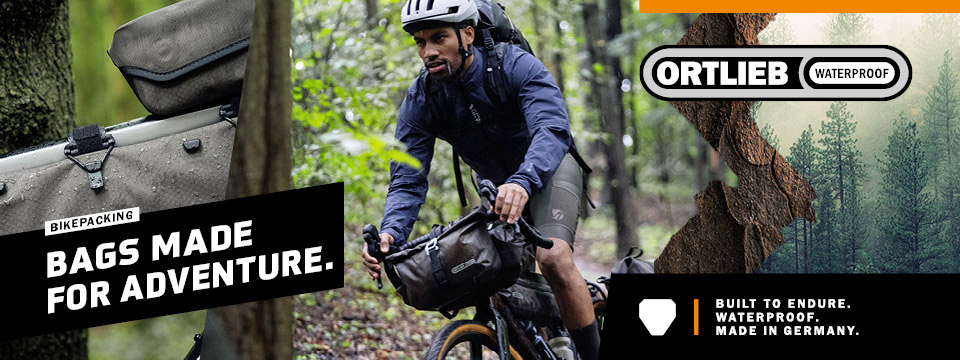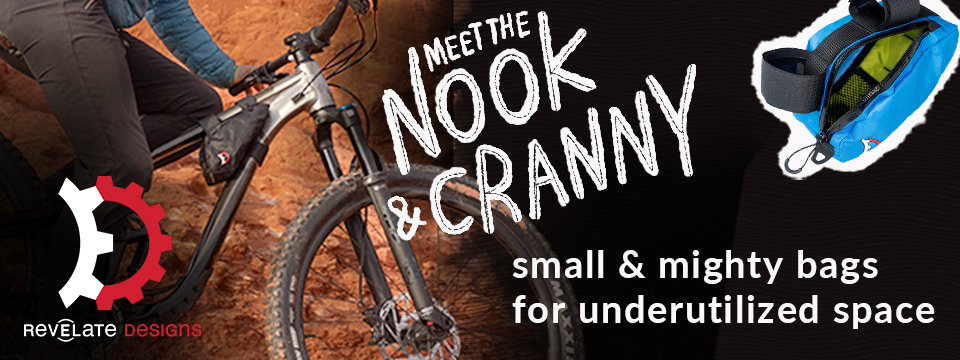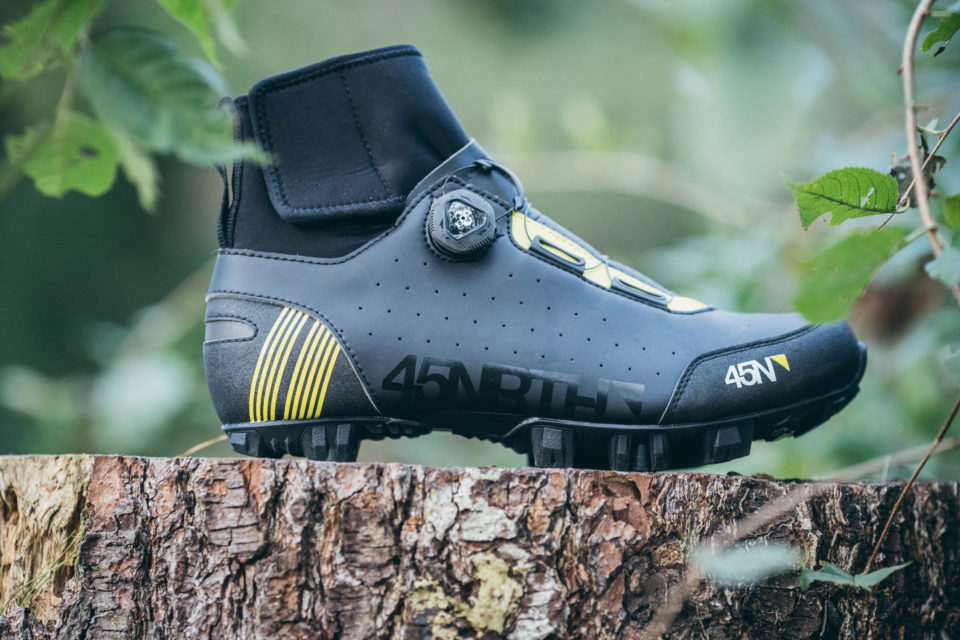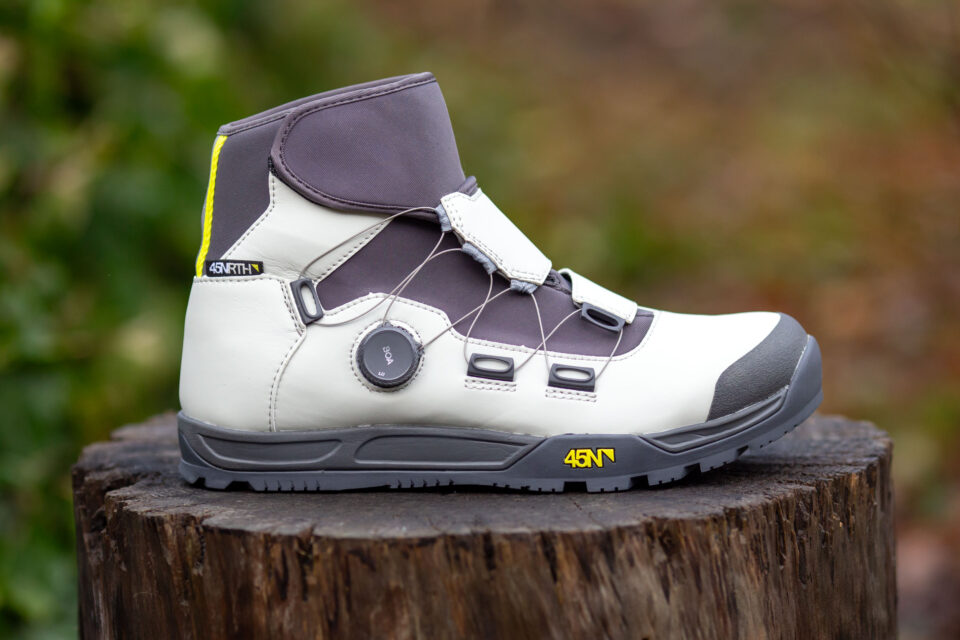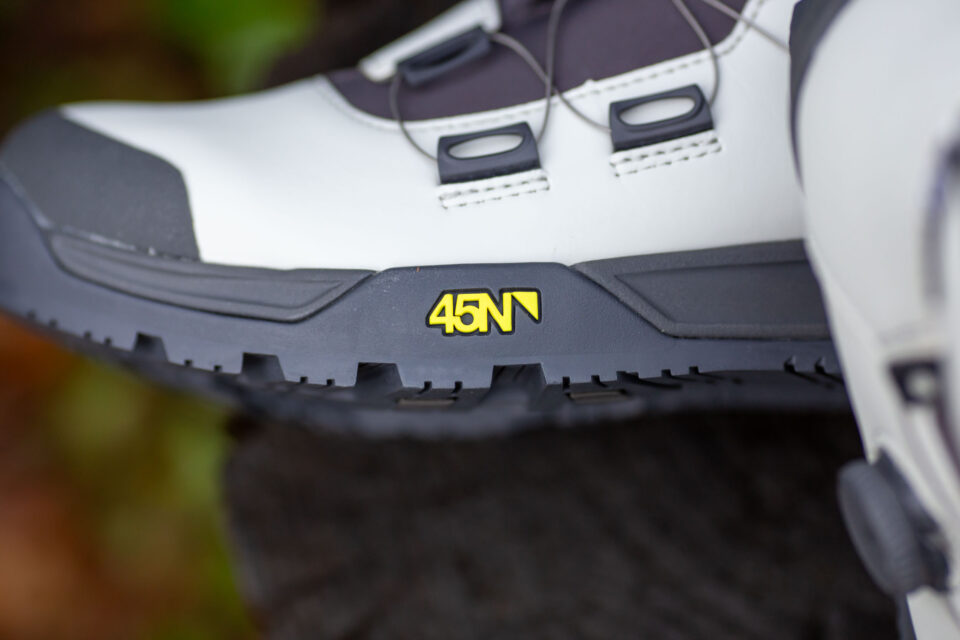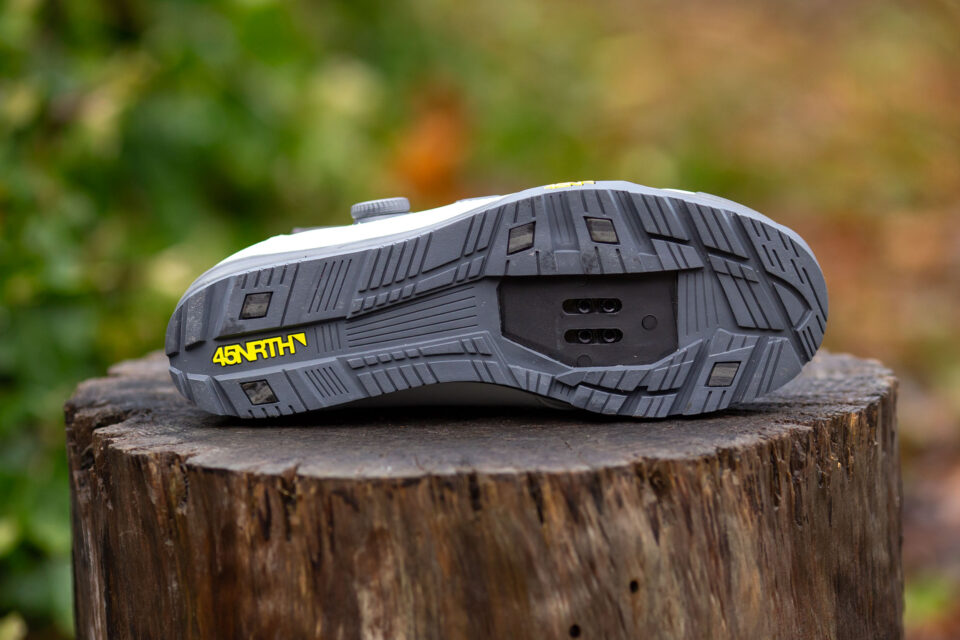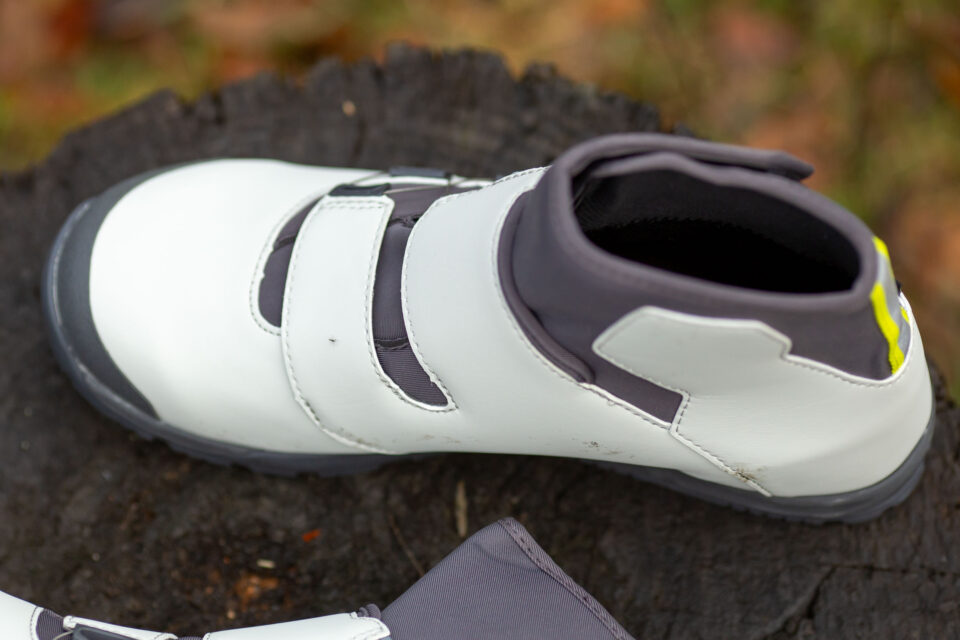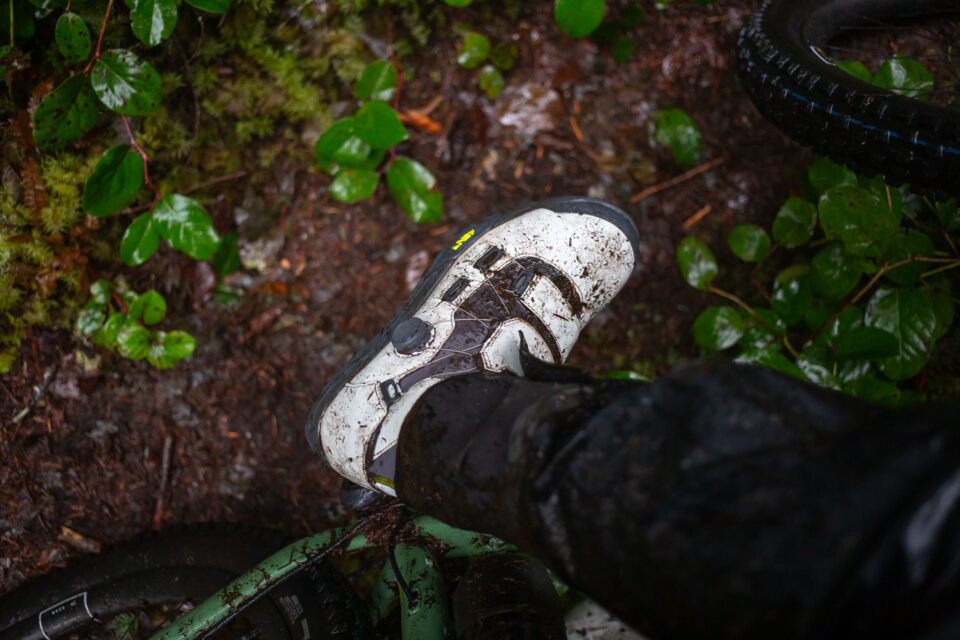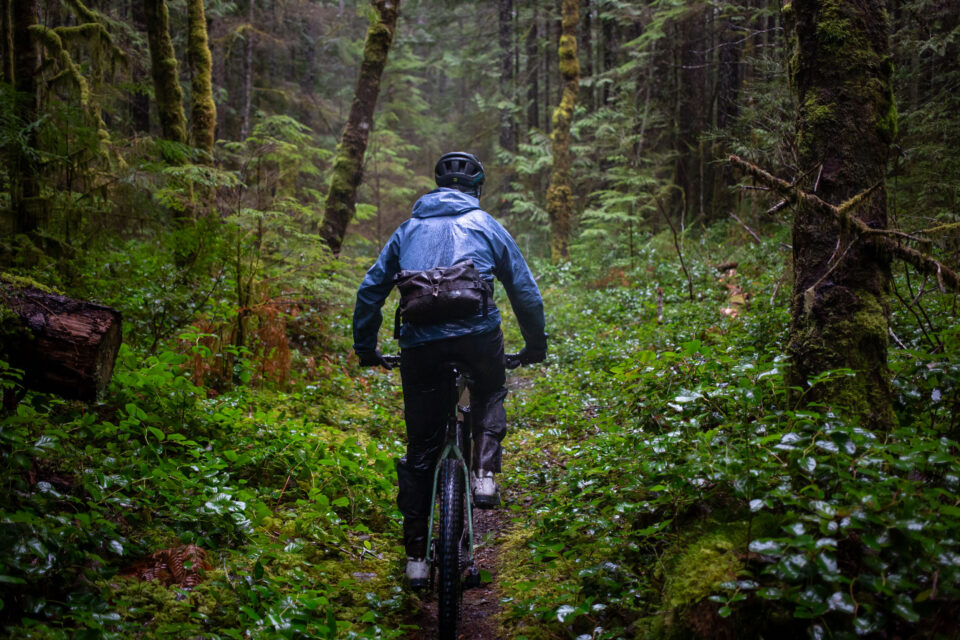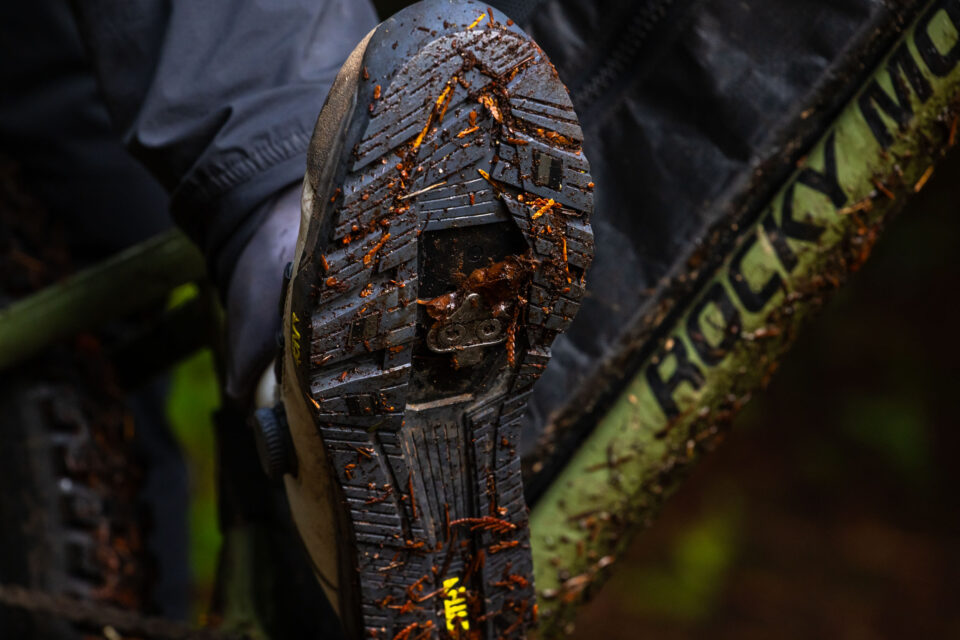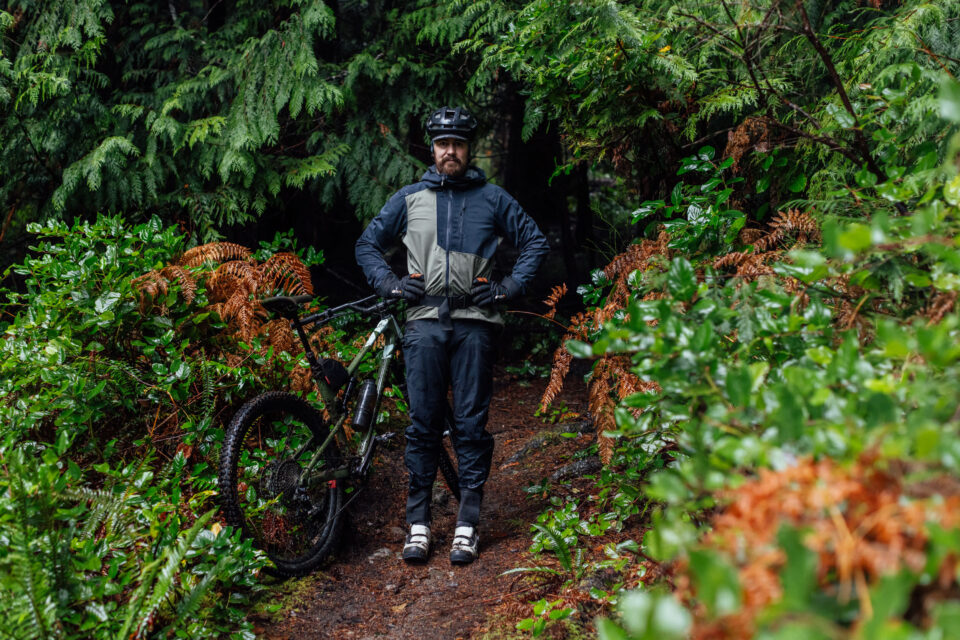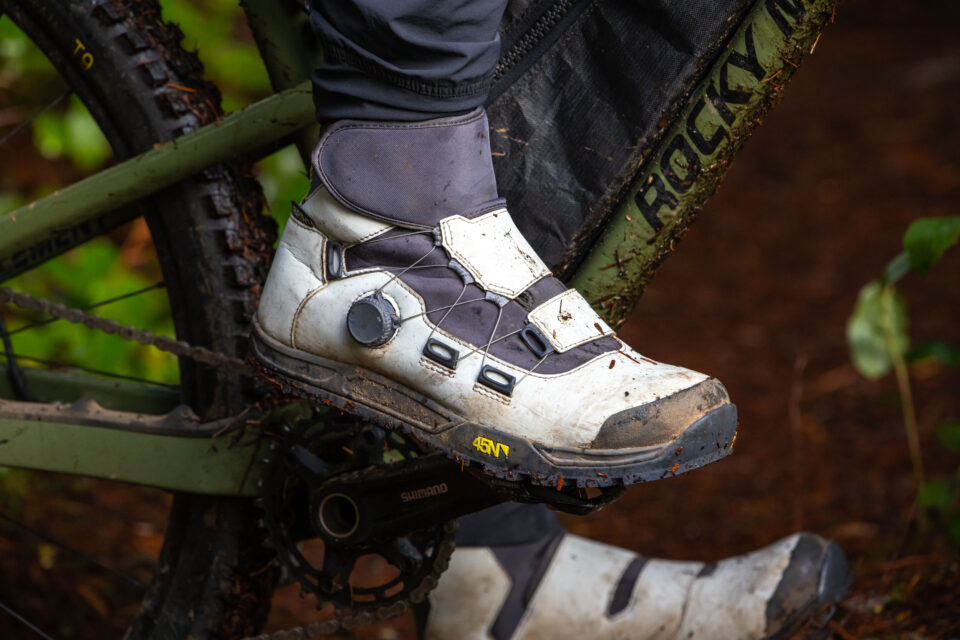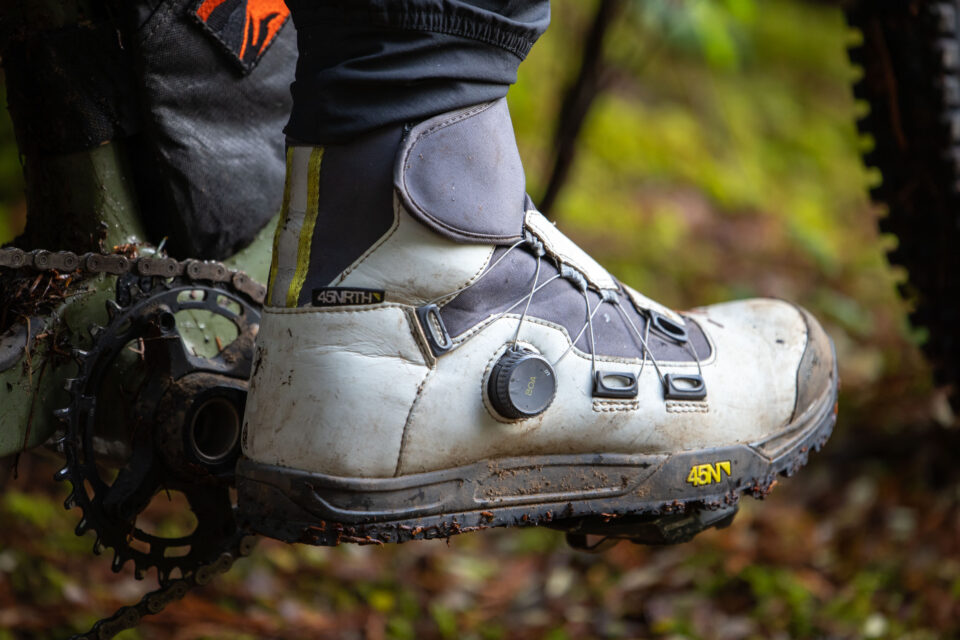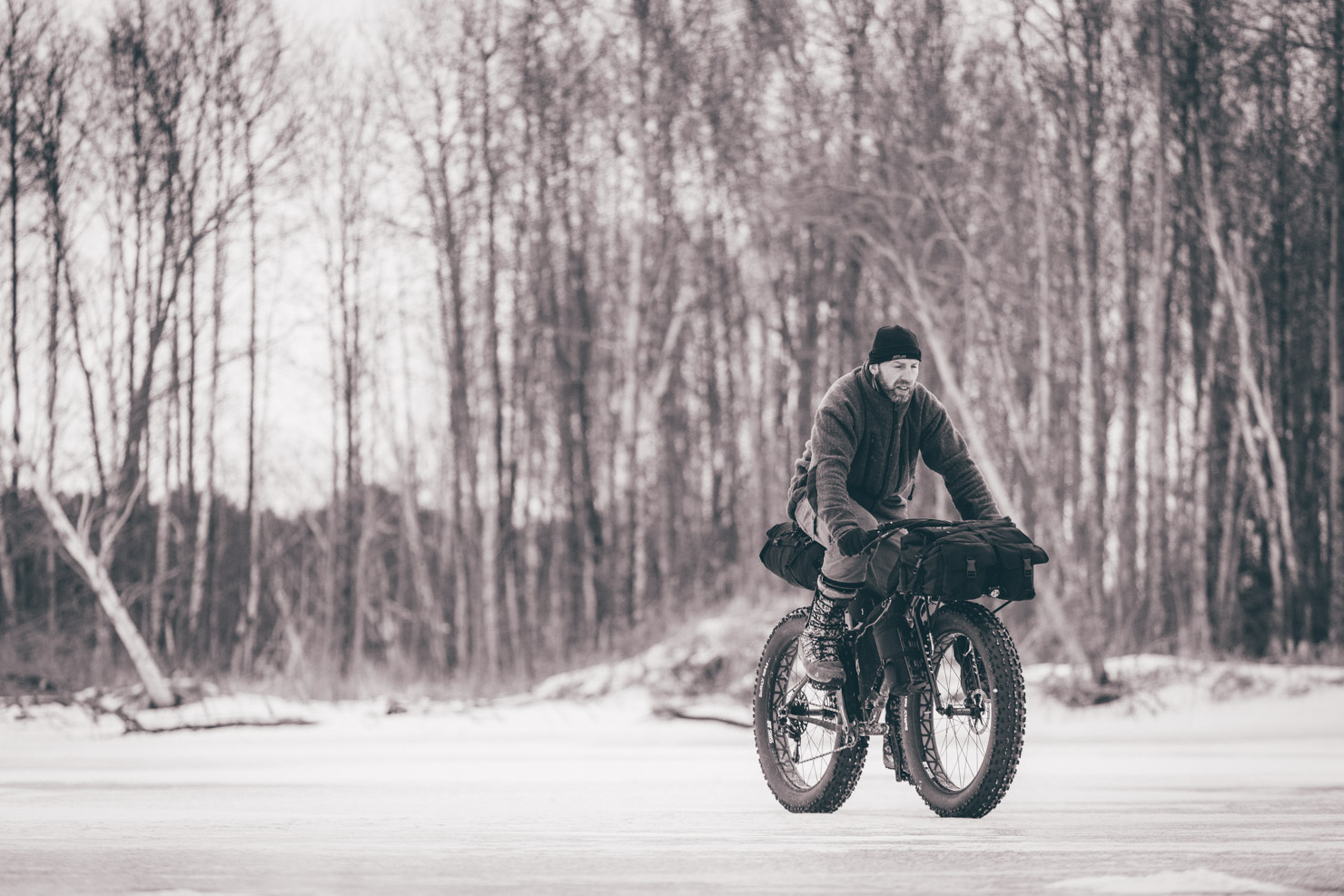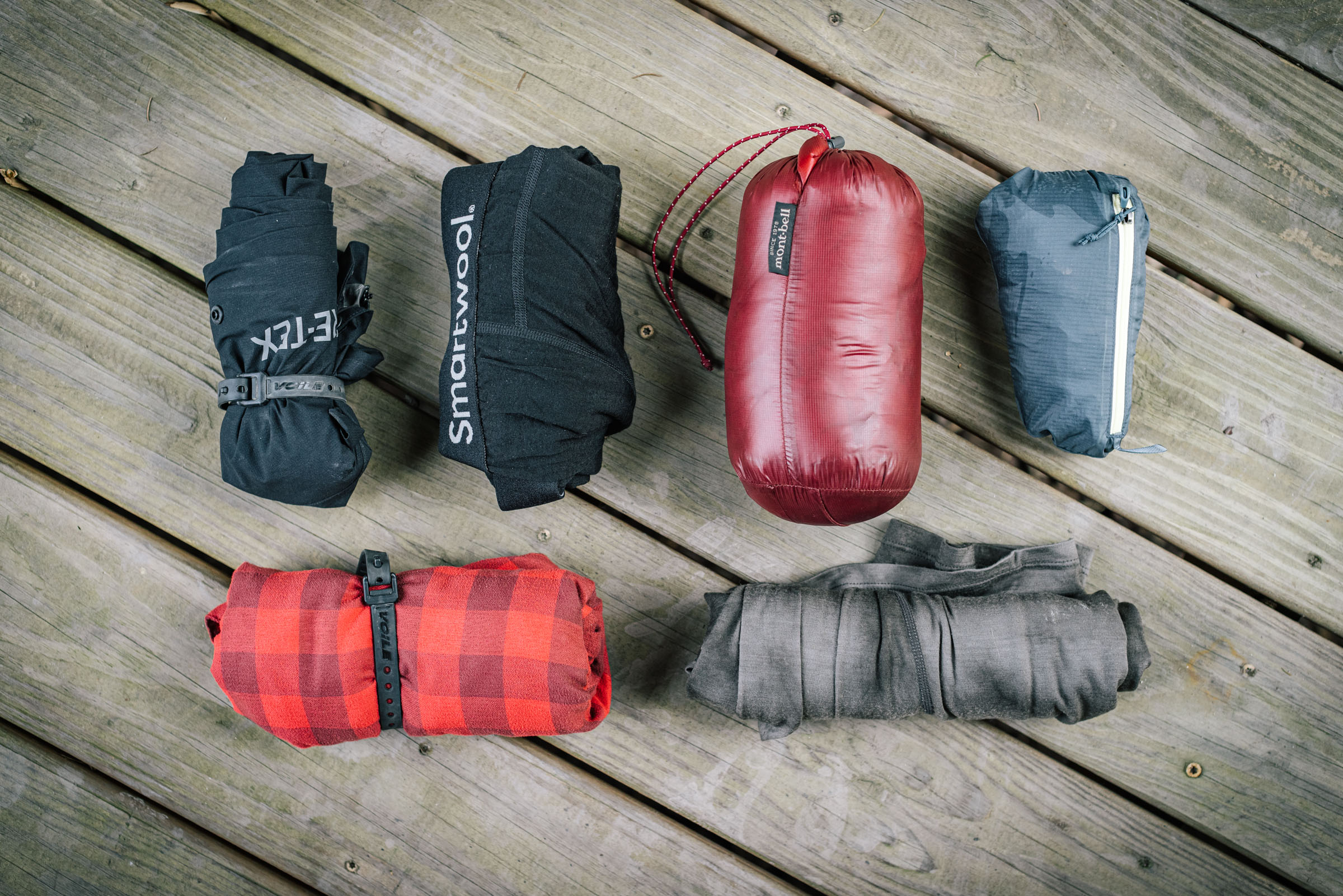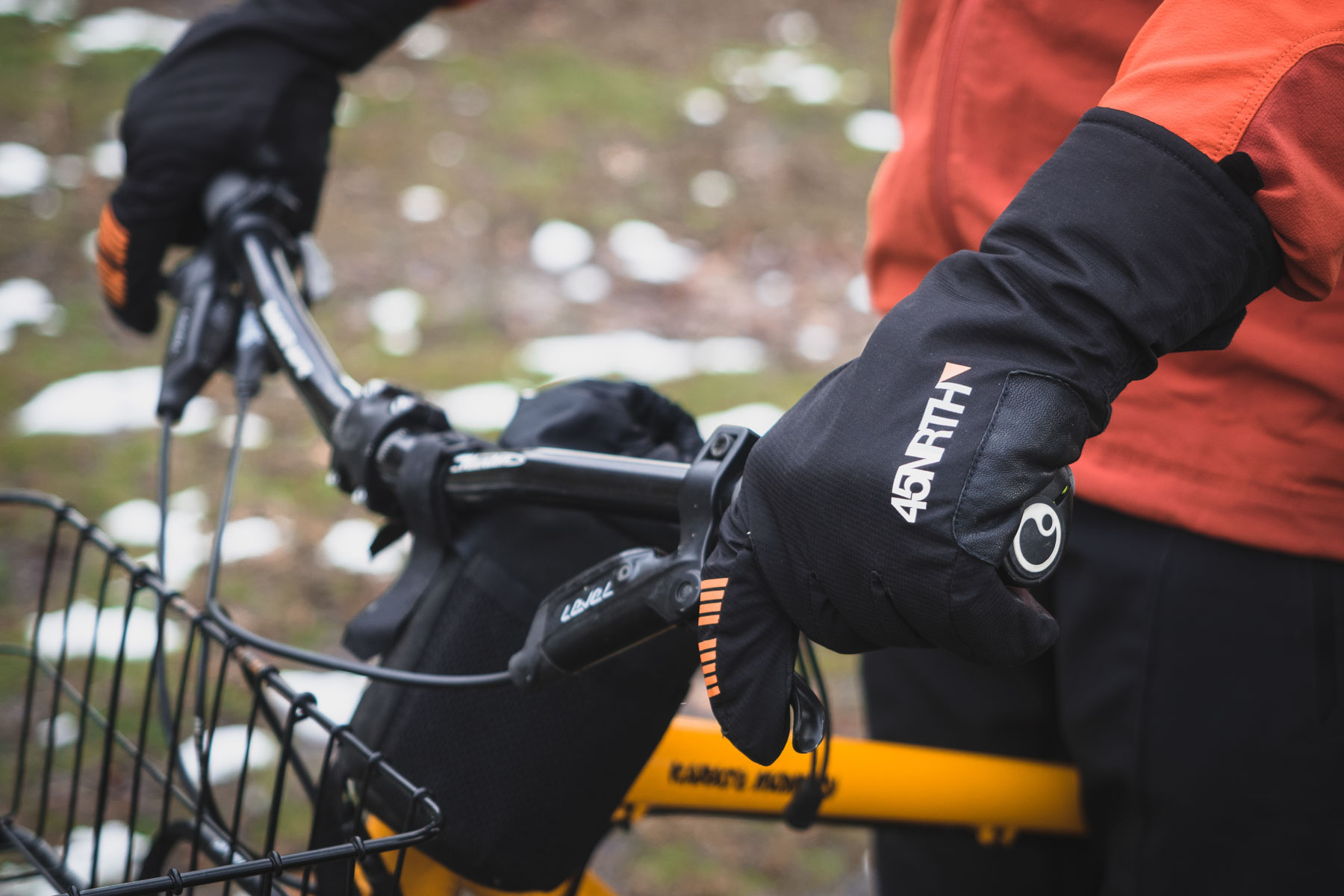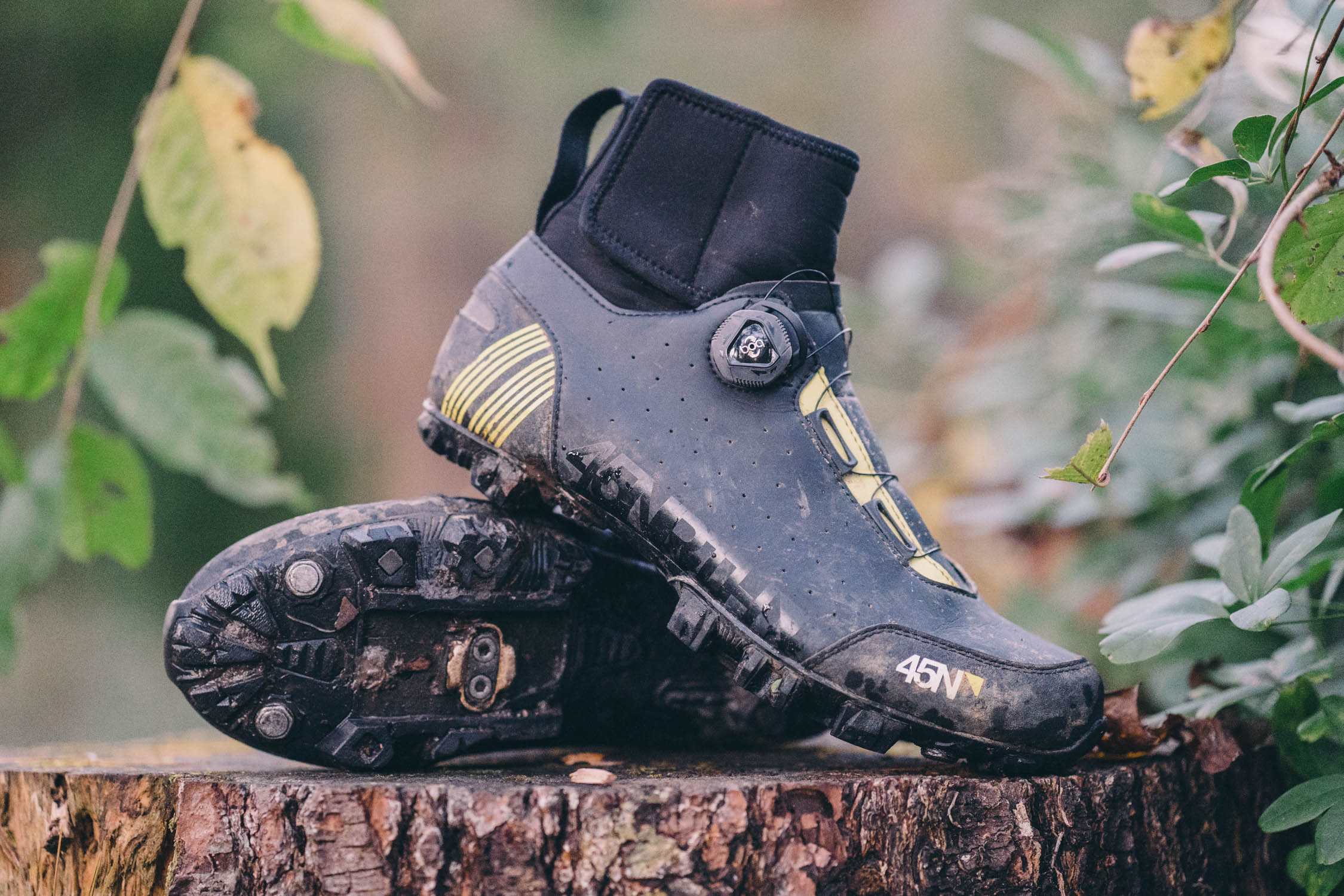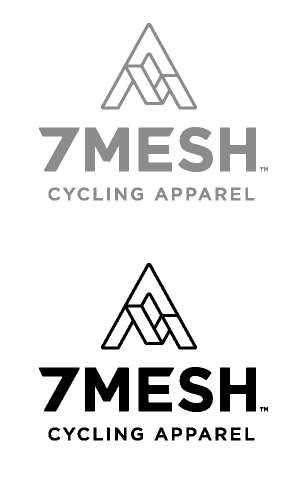45NRTH Ragnarok Boa Review: Shoulder Season be Damned
Share This
Redesigned for 2024, the new 45NRTH Ragnarok BOA Boots are rated for chilly shoulder season riding and feature a highly weather-resistant construction, a grippy sole, and a neoprene ankle closure to keep the elements at bay. Miles has been riding in the wet and cold Pacific Northwest to see how they hold up. Find his 45NRTH Ragnarok Boa review here…
Riding shots by Nathan
There’s something incredibly niche about shoulder season gear. In some parts of the world, including where I grew up in central Ontario, the shoulder season is a short period of time before the real cold weather arrives, and buying specific gear for a few weeks of mildly chilly weather is likely out of reach and unrealistic for many. However, in coastal British Columbia, shoulder season is our winter. It hovers around 6°C (43°F) during the winter months and can drop below 0°C (32°F) at night, but the real challenge is the amount of rain we receive at lower elevations. I’ve said it a hundred times, and I’ll say it again, but I’d take a dry -20°C day over 5°C and rain.
Proper winter-rated gear is too warm for our winters. Managing body heat and moisture is difficult, and it’s easy to get wet and freeze if you’re not careful. I’ve always struggled to keep my hands and feet warm (and dry) during the winters here, especially because my feet sweat while riding. On really cold days, I normally reach for a pair of polypropylene socks and waterproof liners worn inside my normal riding shoes, but even then, I find my feet getting too warm. I’m proud to have played a small part in launching our local cycling association’s motto, “Ride Here All Year,” but I’m slightly embarrassed to admit that it’s much easier said than done.
I remember thinking the original 45NRTH Ragnarok shoes would make a good option for the conditions I described above when they were released in 2018. Everything Logan shared in his review still remains true, including their ability to keep his feet warm down to freezing, their comfortable fit, and their lightweight and sleek profile. Last year, 45NRTH reached out with news of an updated Ragnarok, but this time as a boot instead of the sleek silhouette Logan tested. I received a pair to test near the end of last winter, just as things were warming up, and have continued wearing them this winter. In total, I’ve logged more than 500 kilometers in them so far, including everything from freezing winter days to full-on downpours.
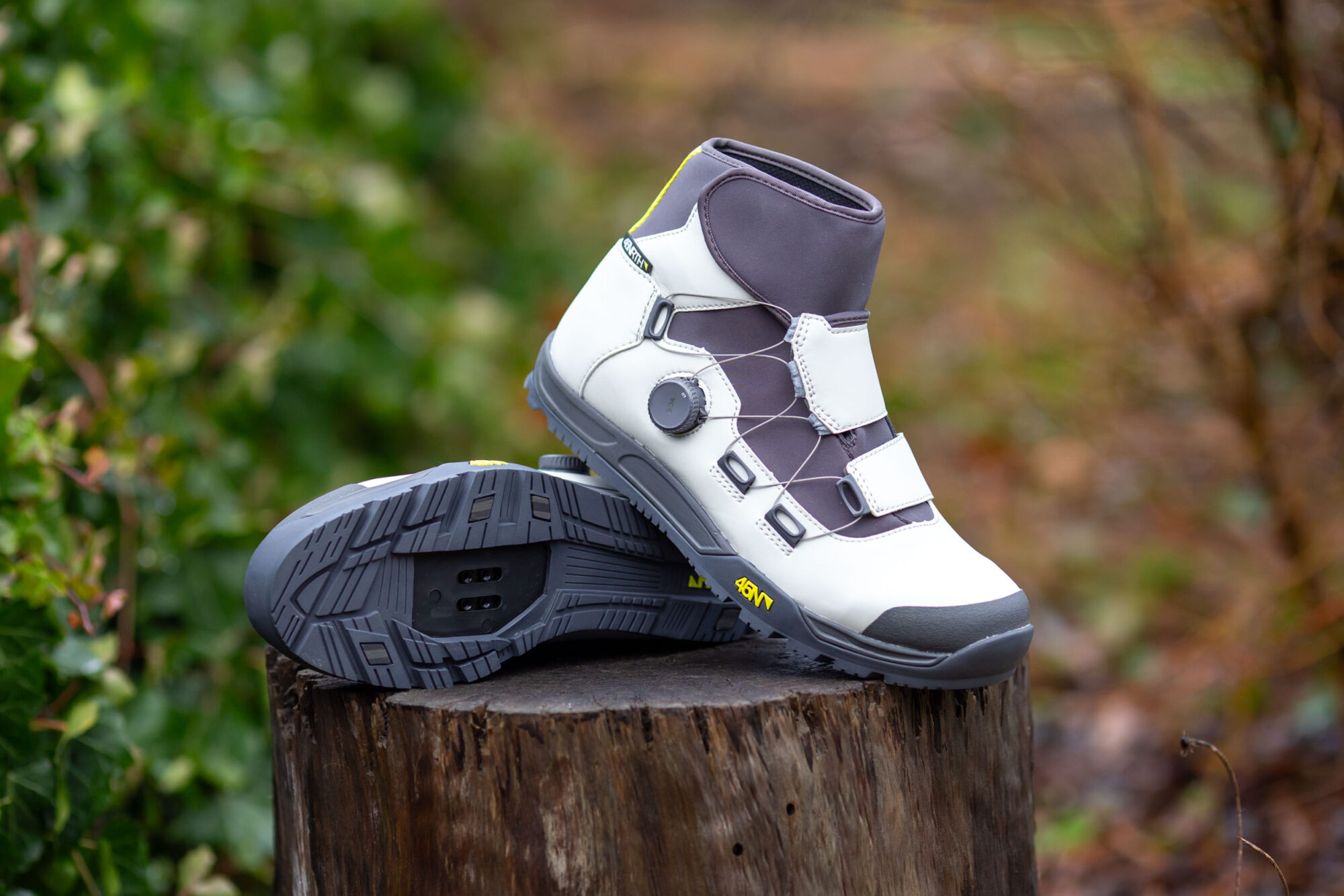
Ragnarok Shoes vs. Ragnarok Boa
The new Ragnarok Boa Boots share many of the same specs as the original Ragnarok, including light insulation (rated for -4ºC/25ºF), a waterproof-breathable membrane (but not a totally waterproof construction), and a neoprene ankle cuff. The Ragnarok Boot still uses a micro-adjustable BOA closure, but it’s now offset to the outside instead of positioned directly on top. The biggest change, however, is the move from a slim shoe to a proper boot. The original Ragnarok had more of a gravel shoe vibe with its slim profile and lugged sole, whereas the new boot has a flat outsole with a chunkier silhouette. For those who prefer the lugged outsole and slimmer look of the original Ragnarok, 45NRTH still offers the Ragnarok Tall Boot, which offers all the same specs but has an extra-long neoprene cuff.
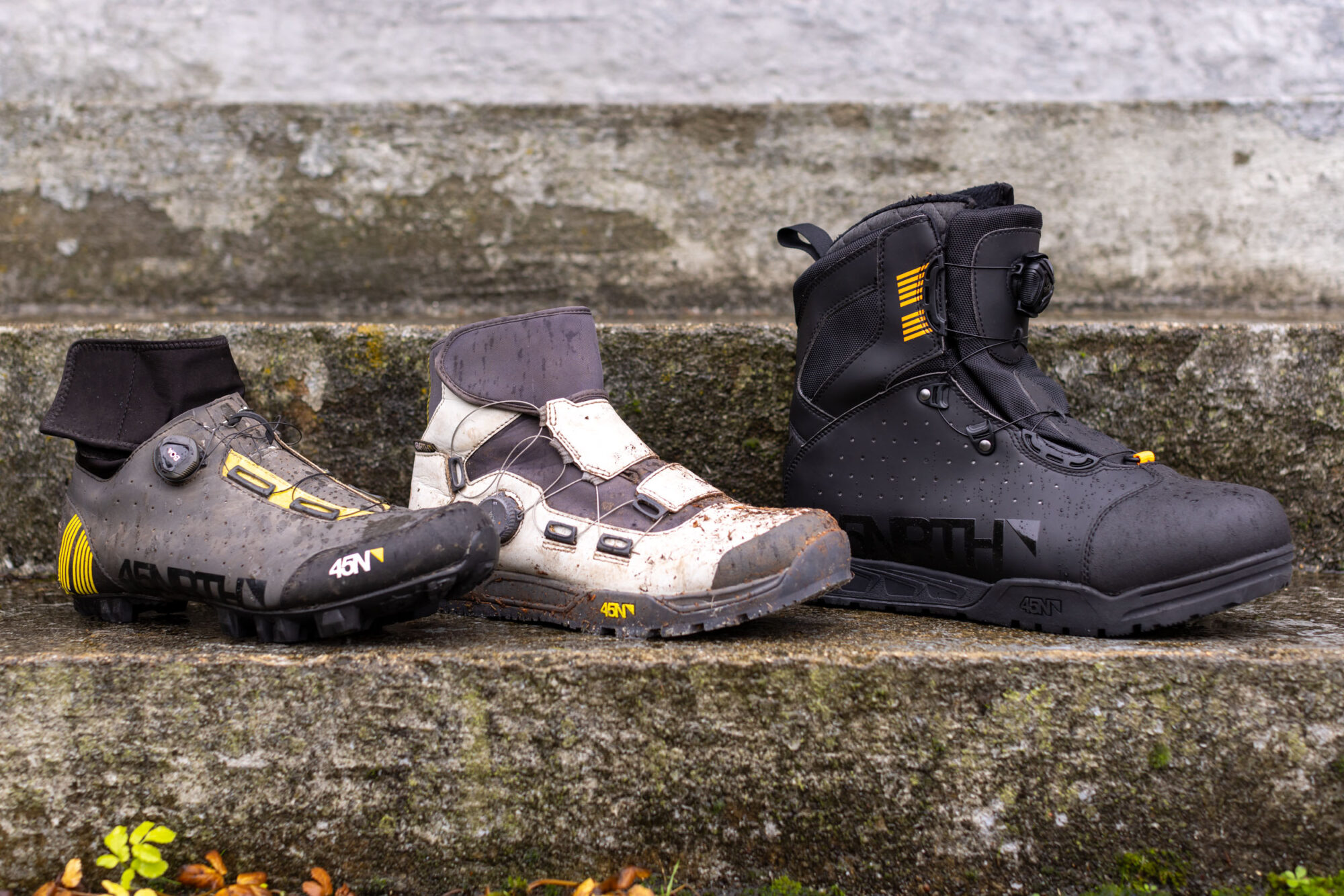
The Ragnarok Boa Boot has a grippy outsole impregnated with microscopic glass fibers to increase traction on slippery surfaces like ice, wet wood, and metal. The tread isn’t particularly aggressive, but the spacing between the lugs increases toward the front and back for additional traction on loose surfaces. The Ragnarok Boot is set up for two-bolt cleats for use with clipless pedals as standard, but they also offer a bolt-on cleat plate for flat pedal use, which is available for free upon request. They use an EVA midsole for cushion and comfort and a performance last that, according to 45NRTH, is optimized for energy transfer, comfort on long rides, and a roomy forefoot.
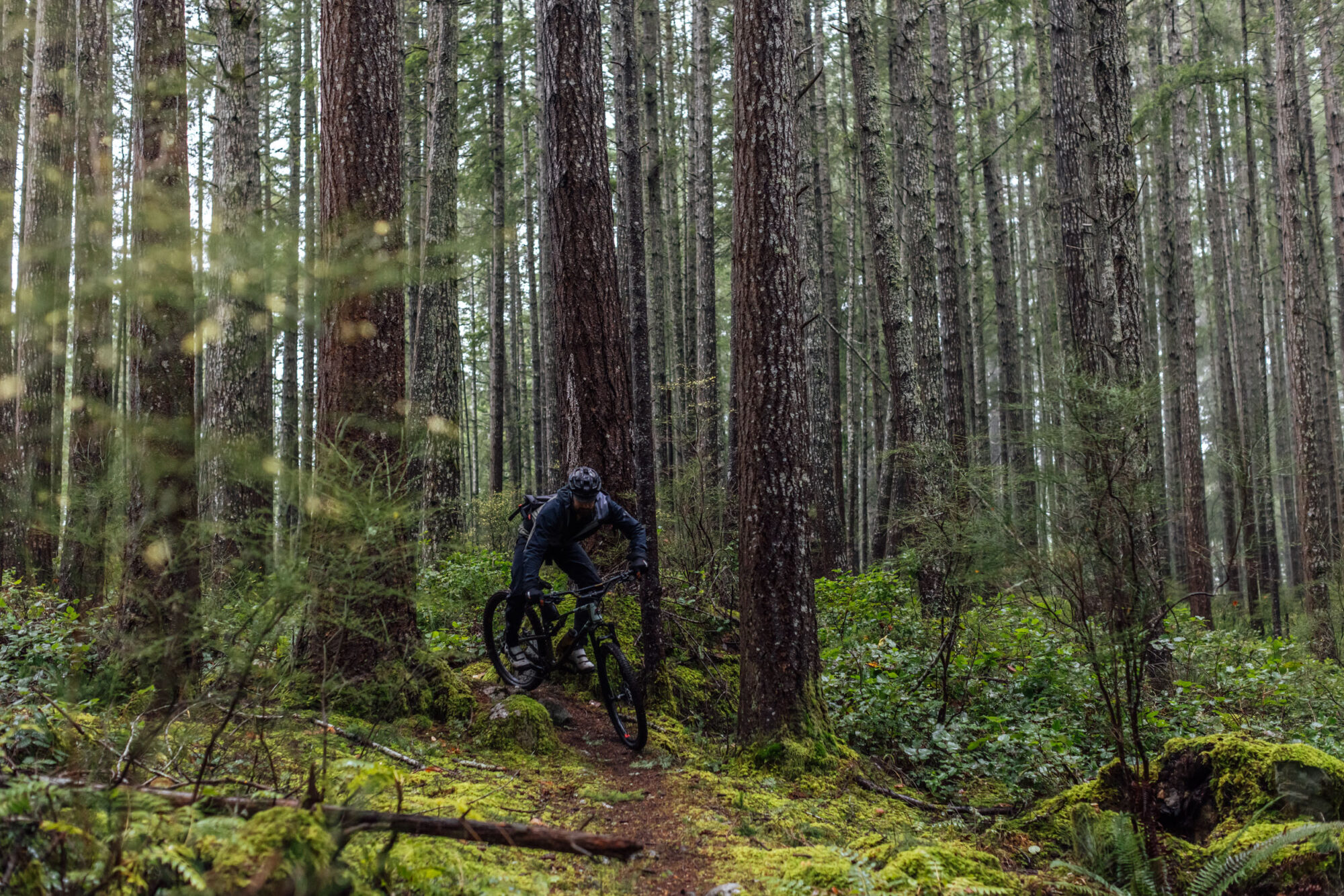
One size 45 shoe with a Shimano cleat installed weighs 640 grams (22.5 ounces), more than 100 grams heavier than Logan’s original size 44 Ragnarok. The next boot in 45NRTH’s lineup is the Wölvhammer BOA, which I also happen to own, and the size 46 weighs in at 973 grams (34.3 ounces) but is rated for -18º to -4ºC (0º to 25ºF). As expected, the Ragnarok Boot is heavier than comparable waterproof footwear, lighter than full-on winter cycling boots, and fills the gap for lightly insulated, weather-resistant shoes.
Into the Wet (and Cold)
My first ride using the 45NRTH Ragnarok BOA Boots was in heavy rain. At that point, I actually thought they were 100% waterproof, as that’s what the product page led me to believe. I remember gearing up in all my waterproof layers, meeting up with a friend, and feeling giddy, knowing that my feet would stay dry. This was true for about an hour of riding in steady rain, but after that, they quickly became saturated and soaked through. It’s frustrating to see “waterproof construction” as the first listed feature on the 45NRTH website, but “weather-resistant materials” listed for the upper details. These are not waterproof boots.
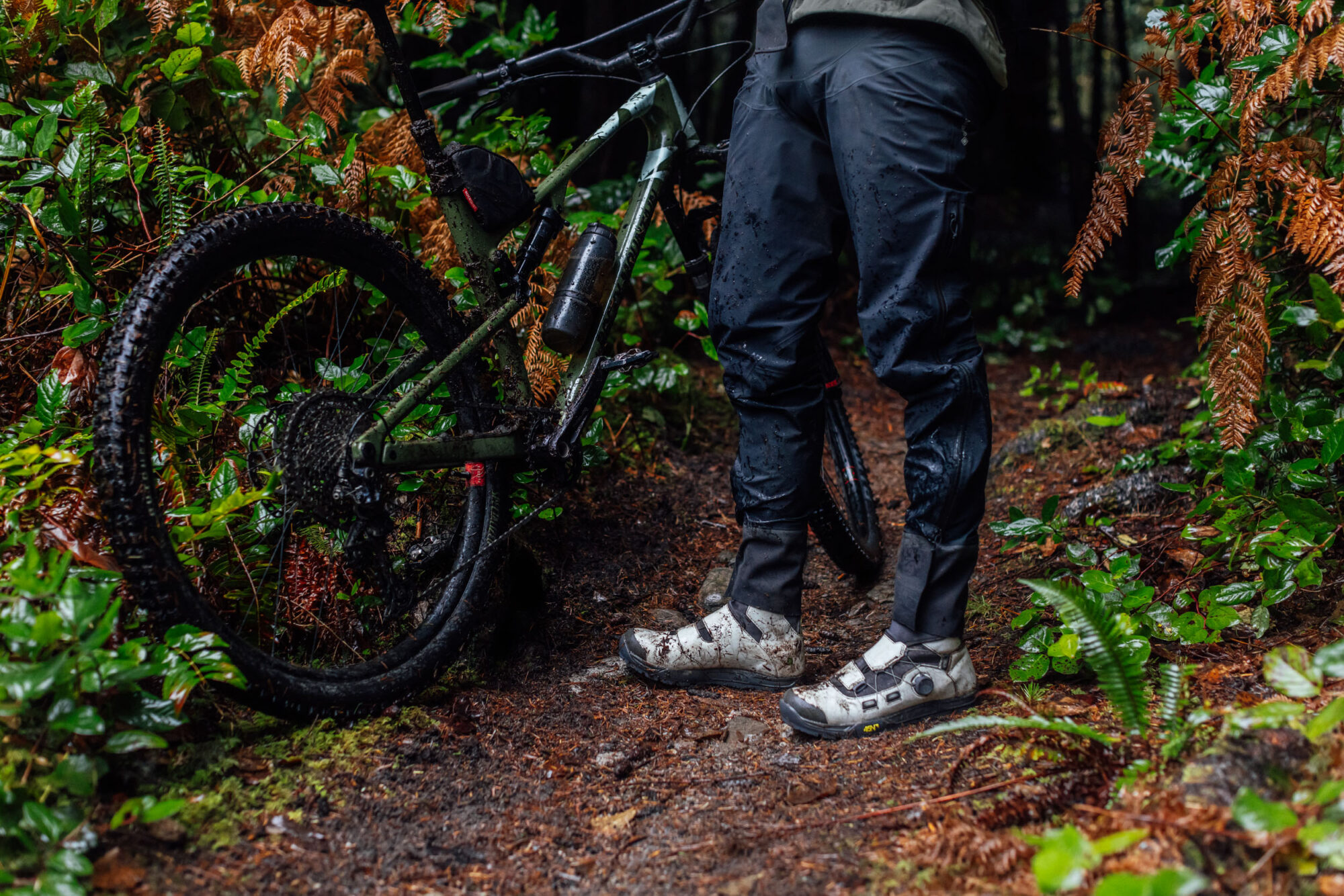
The boots really shine in light rain, sloppy conditions, and when bouncing through puddles and mud. The lack of perforations and vents, paired with the waterproof-breathable membrane, keep the elements out as long as you’re not in heavy rain. The membrane covers the majority of the boot, including the sole, to block out water ingress from the cleat holes, but the neoprene cuff can eventually soak through in seriously wet conditions. Since that initial ride, I’ve limited their use to cold weather and shorter rainy rides, and I’ve been impressed with how they’ve performed. They shed light drizzle, the ankle cuff is tall enough to hide under my go-to 7mesh Glidepath Pants, and they do a good job at keeping mud and dirt out, which is an important feature when riding all year on the coast.
I can fit a mid-weight wool sock into my size 45 (my normal shoe size), and I’ve stayed warm right down to 0°C (32°F), so 45NRTH’s comfort temperature rating seems accurate to me. I don’t find them to be the most breathable shoe, which isn’t that surprising considering the lack of ventilation and how much of the PU Microfiber exterior covers the shoe, and I come home to a slightly damp sock on most multi-hour rides. I have notoriously sweaty feet, so this also doesn’t surprise me. If I was heading out on a bikepacking trip in conditions that called for the weather resistance and light insulation of the Ragnarok Boots, I’d likely pair them with some thin polypropylene liner socks to help wick moisture away from my skin. Thankfully, they have a roomy fit and lots of adjustment, so fitting various socks with one size is possible.
Feel and Features
I wouldn’t describe the Ragnarok Boots as overly stiff, but they have a bulky fit that doesn’t provide much pedal feel. This was most noticeable while riding technical singletrack, where I often shift the weight of my feet within my shoes and on my pedals, even while riding clipless. I accidentally unclipped from my pedals a few times because it’s hard to predict what the boot might be doing below. It’s a similar story during hike-a-bikes–almost like hiking a light winter boot without much foot-to-ground connection. However, considering their low-profile tread, they grip surprisingly well on slippery rocks, roots, and wooden bridges. The forefoot has just enough flex to feel natural off the bike without ever feeling sloppy while on it. They also hook up well on my Shimano pedals in the off chance I miss the clip or need to quickly dab my foot on an awkward turn.
I’m not normally a fan of BOA closures, but the position of the dial and the oversized forefoot “covers” wrap evenly around the foot. They distribute the pressure across the entire foot, and I never felt like I had any hot spots, even on long rides. The BOA closure also allows the shoe to open up wide at the end of the day, improving their ability to dry out, which is a must for any shoe I consider taking on multi-day trips. I’ve been having issues with other brand’s laces recently, tearing them to pieces after a handful of rides, and I think a BOA closure actually makes a lot of sense for a soggy weather boot.
Pros
- Highly weather-resistant construction holds up well in light rain, puddles, and the muck of the shoulder season
- Warm enough for a mild winter without feeling like overkill
- BOA closures opens right up and cinches down evenly across foot
- Reasonably quick to dry out
Cons
- Not waterproof
- Shoulder season temperature rating might be limiting for some
- Bulky feeling compared to summer-weight cycling shoes
- Material: PU Microfiber, Synthetic Rubber Upper/Polyester Mesh Liner
- Sizes Available: 36-48, 50 (no half sizes)
- Weight: 640 grams (size 45, one boot with cleat)
- Place of Manufacture: China
- Price: $215 USD
- Available from: REIJenson USA
- Manufacturer’s Details: 45NRTH.com
Wrap Up
While I often miss the crisp winter days I grew up with, I consider myself lucky to ride year round. It’s conducive to my line of work, too. As mentioned, our shoulder season here in the Pacific Northwest cuts through winter and lasts for the better part of five months. You want to dress warm but not so warm that you start sweating, and you also want to have good waterproof layers but still manage your sweat buildup so you don’t get wet and cold that way. We all know that keeping your extremities warm and dry on the bike is crucial for a comfortable ride, and while folks in some parts of the world might roll their eyes at a “transition season cycling boot,” as 45NRTH describes them, it’s all we ever really need here on British Columbia’s Sunshine Coast. Unfortunately, the Ragnarok BOA Boots aren’t fully waterproof and eventually wet out on long rides in heavy rain, so they’re not the solution to dry feet I’m looking for beyond short afternoon rides. Given the right conditions, they are comfortable, well-built, and functional, but whether they work for you ultimately depends on how you define “shoulder season.”
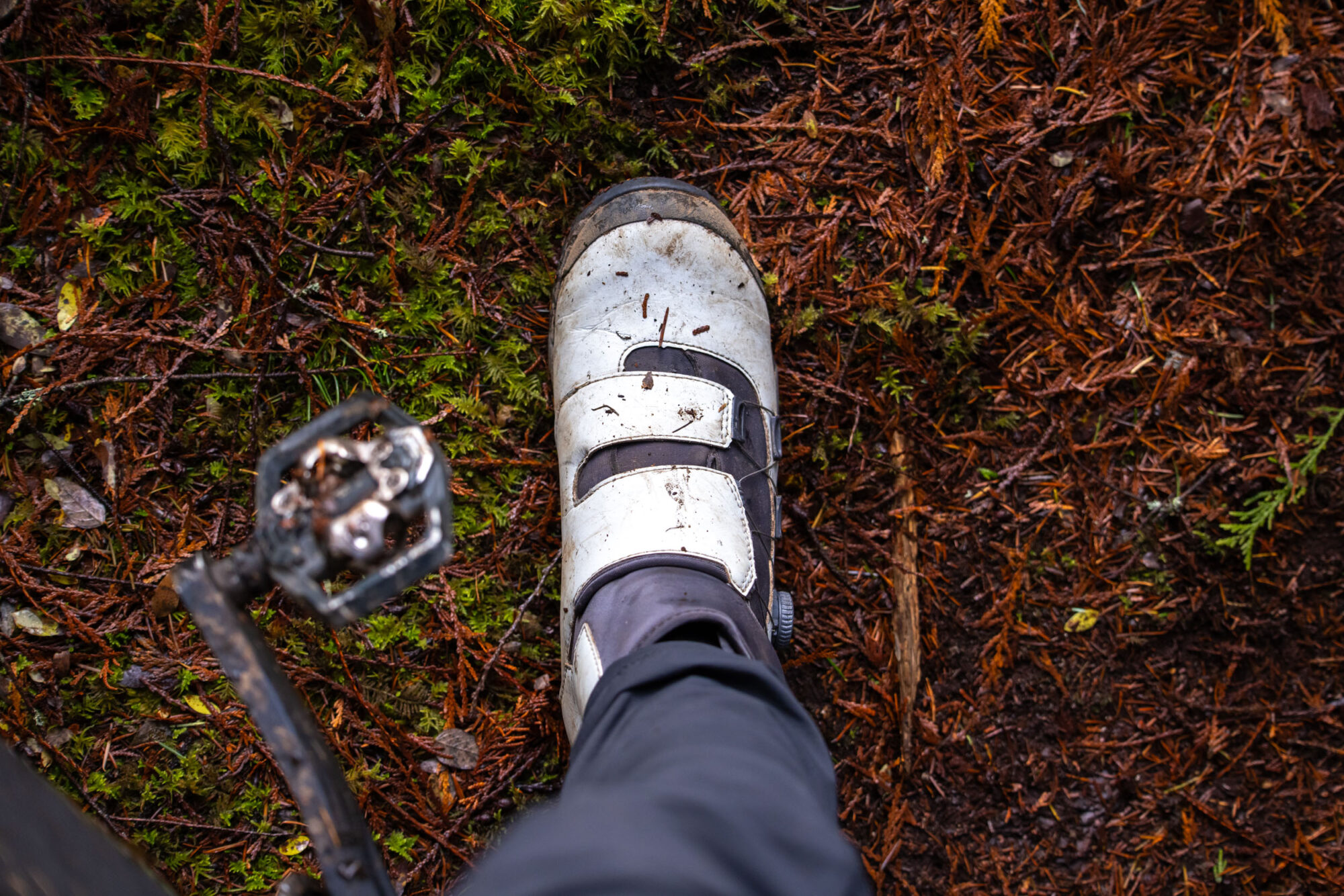
Further Reading
Make sure to dig into these related articles for more info...
Please keep the conversation civil, constructive, and inclusive, or your comment will be removed.




